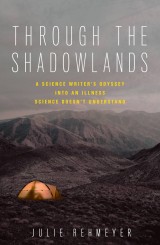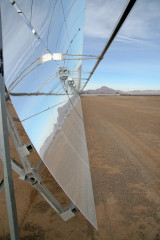 Plastics: From Pollution to Solutions (start time: 0:58) We all want to think that the yogurt tubs, takeout containers and other plastic products that we toss into our kitchen recycling bin will actually get recycled. Chances are, they won’t. Plastic product makers have for many years been deceptively applying the “chasing arrows” recycling symbol on their products, even when those products can not and will not be recycled. But some progress is being made in tackling the enormous plastics-pollution problem, including by forcing producers to truthfully label their plastic products, and passing legislation that holds companies financially responsible for the afterlife of their products. In this week’s show, host Susan Moran interviews Susan Shain, a reporting fellow at the New York Times who recently wrote an article about plastic recycling; and Jennifer Congdon, deputy director of Beyond Plastics, an environmental advocacy project based at Bennington College in Bennington, Vermont.
Plastics: From Pollution to Solutions (start time: 0:58) We all want to think that the yogurt tubs, takeout containers and other plastic products that we toss into our kitchen recycling bin will actually get recycled. Chances are, they won’t. Plastic product makers have for many years been deceptively applying the “chasing arrows” recycling symbol on their products, even when those products can not and will not be recycled. But some progress is being made in tackling the enormous plastics-pollution problem, including by forcing producers to truthfully label their plastic products, and passing legislation that holds companies financially responsible for the afterlife of their products. In this week’s show, host Susan Moran interviews Susan Shain, a reporting fellow at the New York Times who recently wrote an article about plastic recycling; and Jennifer Congdon, deputy director of Beyond Plastics, an environmental advocacy project based at Bennington College in Bennington, Vermont.
Host/Producer: Susan Moran
Engineer: Shannon Young
Executive Producer: Beth Bennett
Listen to the show:
Podcast: Play in new window | Download (Duration: 27:28 — 37.7MB)
Subscribe: RSS




 We offer two feature interviews on today’s show.
We offer two feature interviews on today’s show.